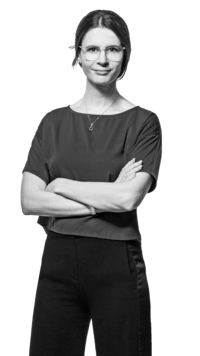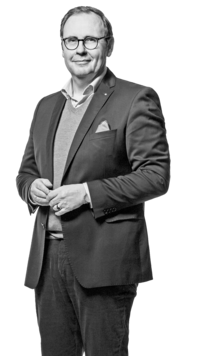Rotterdam, often underestimated but truly remarkable, played a significant role in the ongoing journey of the Re-Building Europe 2023 initiative, perfectly encapsulating a unique perspective on this year's theme of 'Urban Density and the Vertical City.
More than 40 guests from all over Europe attended the two-day event. The first day started with a networking prelude with the opportunity to witness the finalized project of the Blink Bar at our Domain.
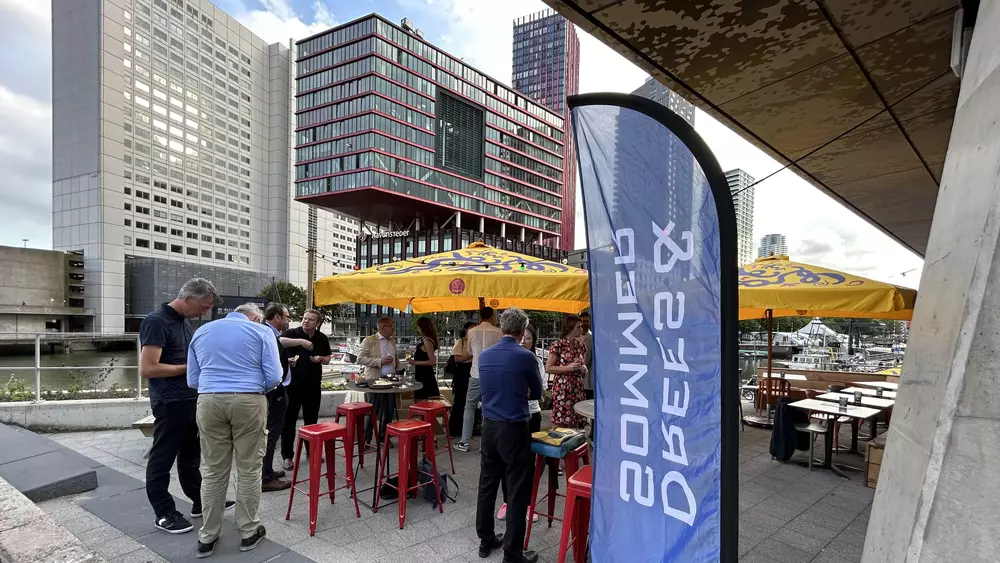
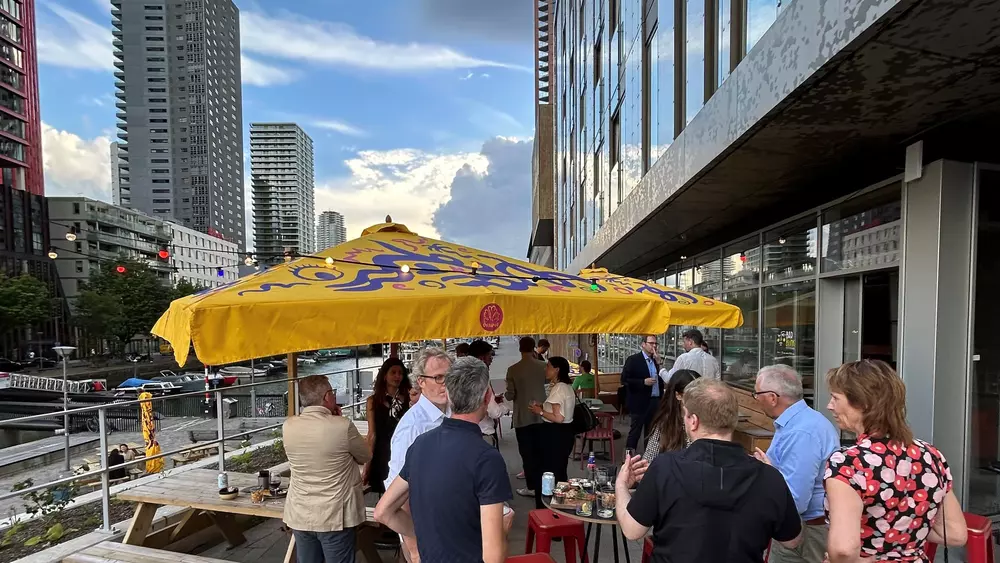
On the second day, an engaging exchange unfolded inside the municipal service owned Timmerhuis, a combination of post-World War II reconstruction architecture. Both locations served as tangible showcases of best practices, effectively highlighting the practical relevance of the discussions and development of the city Rotterdam.
The morning of July 12th commenced with a keynote of Emiel Arends, Expert and Policy Maker on Highrise and Urban Development for the City of Rotterdam and Amsterdam-Zuidas, providing insights in the cities urban development, high rise construction, greenification and densification approaches.
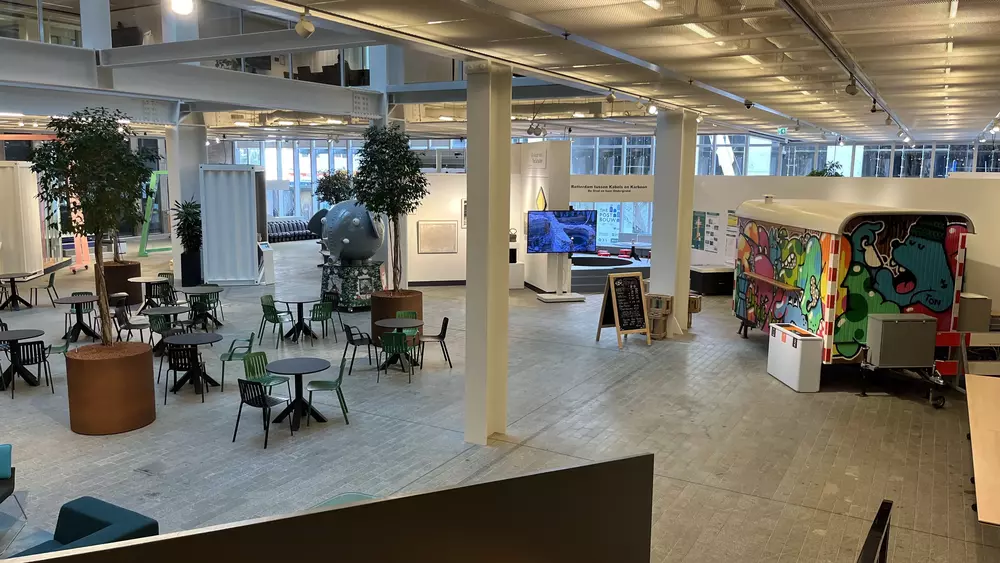
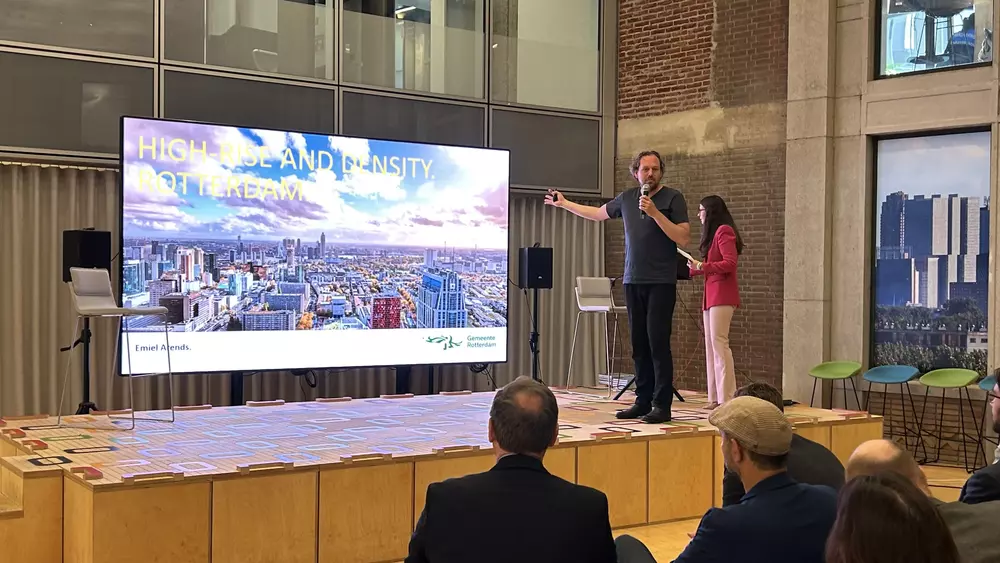
PANEL DISCUSSION
The day continued with the panel discussion featuring Emiel Arends, Karen van Ruiten, Director at Alles is Gezondheid, Willem Philipsen from the Gemeente Rotterdam, Jeroen Dirckx, Partner, urban designer and architect at KCAP and Bob de Vilder, International Business Developer at Mosaic World.
This panel on "Verticality in a Healthy City " sparked interactive exchange between the panelists and the audience on the implications of denser urban environments on inclusiveness and social interactions. One major concern raised was the lack of inclusivity in building design, particularly for people with disabilities. The absence of alternative options to staircases was identified as unwelcoming. To foster a healthy city, it was emphasized that the presence of playgrounds, facilities, and interactive spaces is crucial. High-rise buildings were criticized for their lack of green spaces and inclusiveness.
The panelists collectively acknowledged the significance of enabling people to connect and feel valued. The shift in mindset from individual houses to communities was emphasized, with the recognition that social aspects of a healthy environment are similar across cultures. Building, evaluating, learning, and applying these insights were emphasized as essential steps in city development.
A key takeaway from the panel was the question of who is living in the city and how to develop business models and secure financing for healthy city perspectives. It was suggested to adjust financial models, incentivize culture, and drive collaboration.
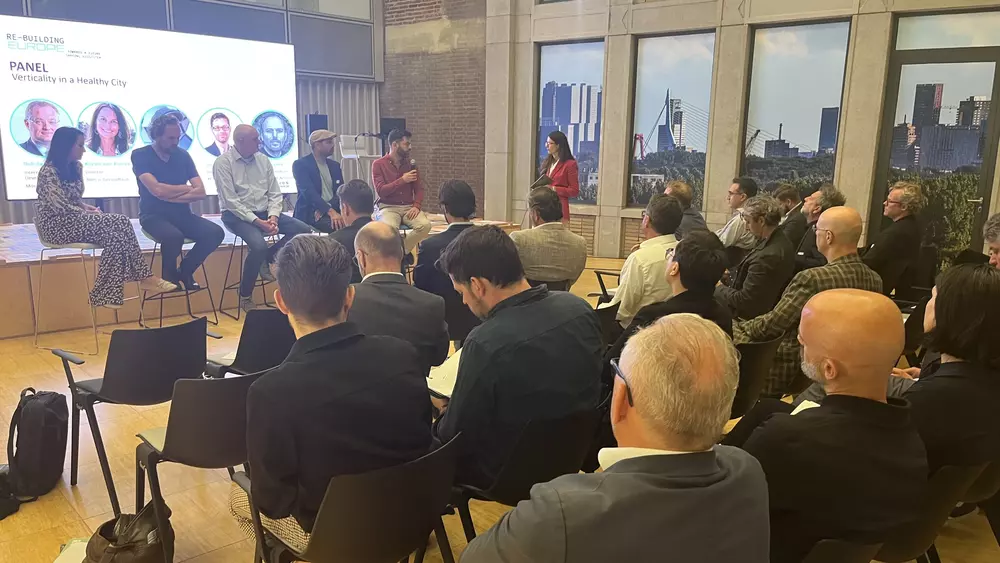
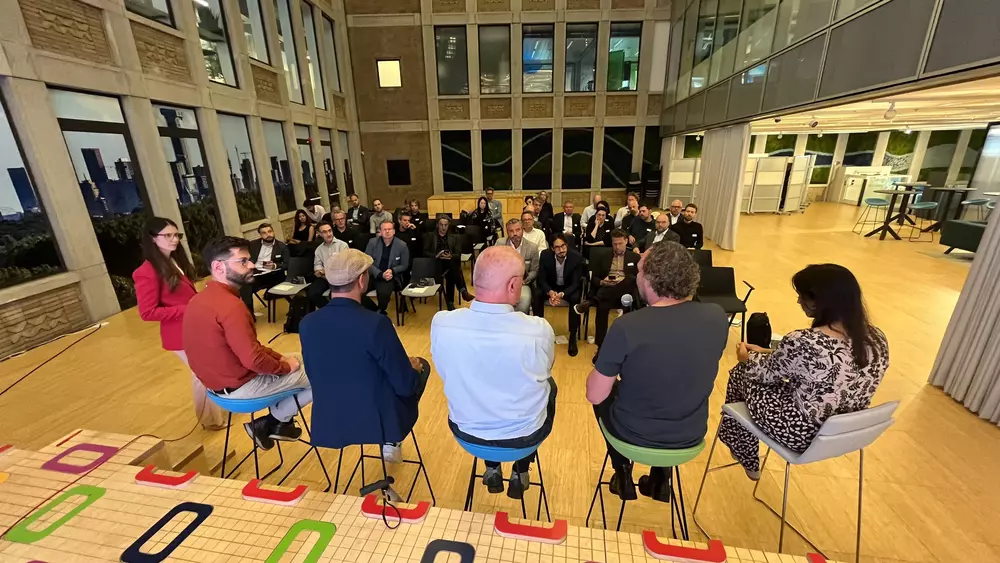
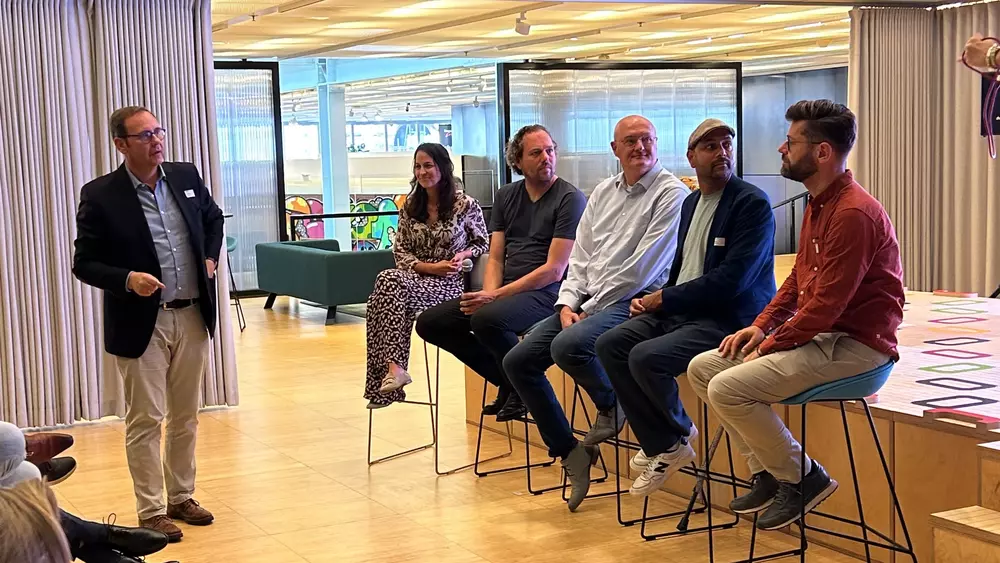
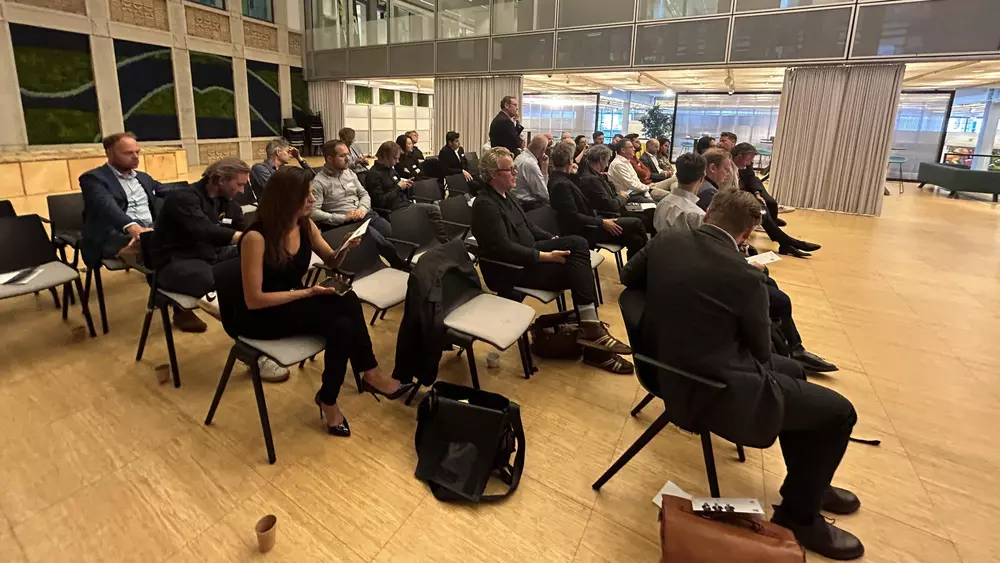
IMPULSES
These and other insights were then connected in three impulses with aspects of future shaping ecosystems from Mathias Lehner, architect & strategic advisor for urban development, urban mobility from Vincent Taapken, Founder, New Industry and ESG from Marco Villares, Drees & Sommer.
The discussion emphasized the need to create spaces for nature within public realms and viewed crises as opportunities for productive change. The participants explored the concept of seeing cities through a nature-inclusive lens, promoting connections, robustness, modularity, diversity, stewardship, and effective communication. One takeaway was that nature-inclusive design not only contributes to environmental sustainability but also adds economic value to buildings. The discussion also touched upon the importance of incentives and leadership to accelerate progress, highlighting the benefits of nature restoration, improved health, and increased real estate value.
Furthermore the need to provide convincing arguments against excessive parking infrastructure and explored the possibility of repurposing existing infrastructure for combined parking and residential use was touched. Discussions highlighted the urgency in implementing smart solutions and the importance of engaging in democracy to understand the long-term benefits of sustainable urban planning.
The final impulse revolved around the environmental targets set by the EU taxonomy and their implications for building practices. Various requirements, including carbon reduction, material recyclability, pollution prevention, and indoor air quality thresholds were analyzed. The exchange highlighted the importance of circularity and the potential risks involved in financing conformity to the EU taxonomy. The need for a new normal in operations, emphasizing compliance and recording was recognized implying the need for a shift in the ecosystem to address them effectively.
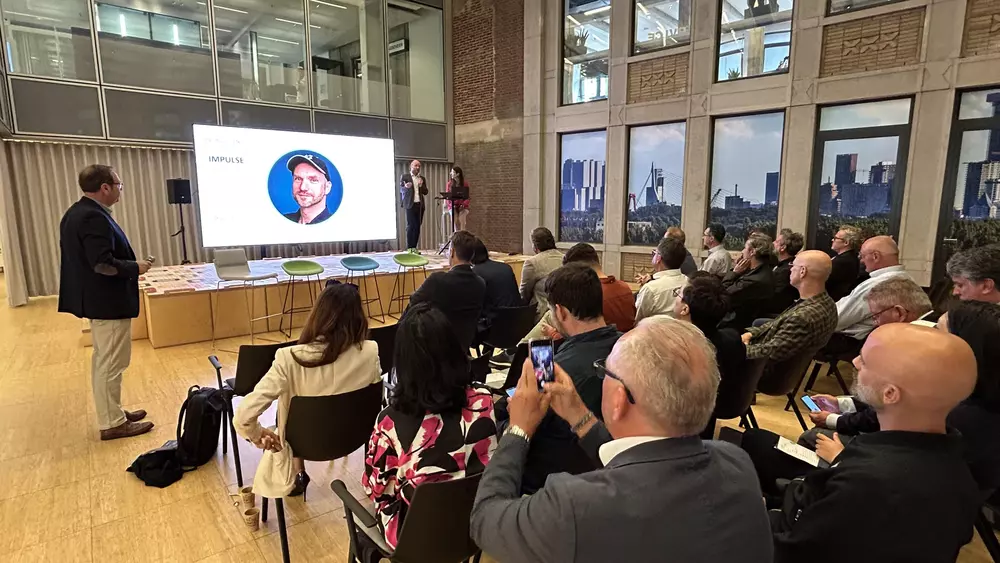
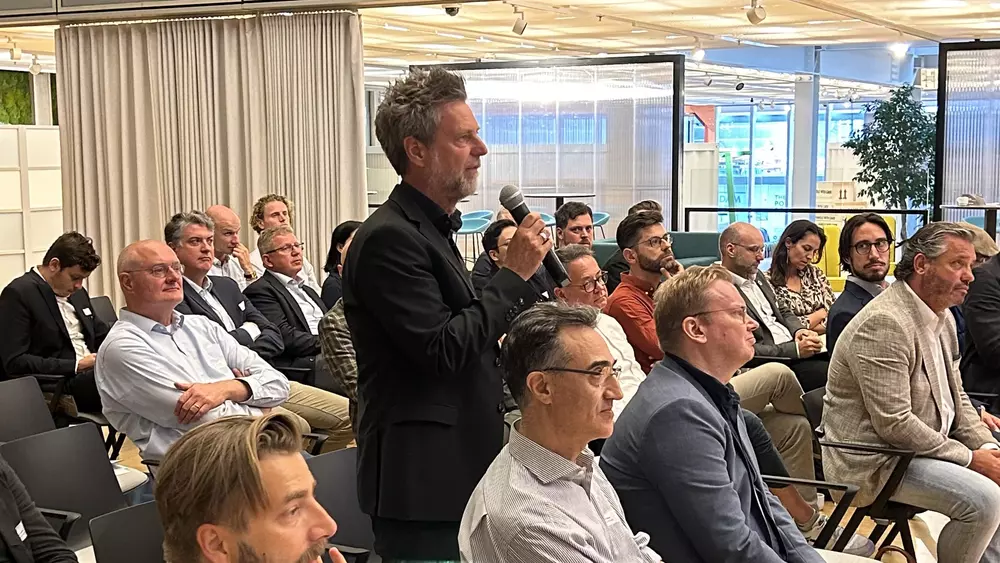
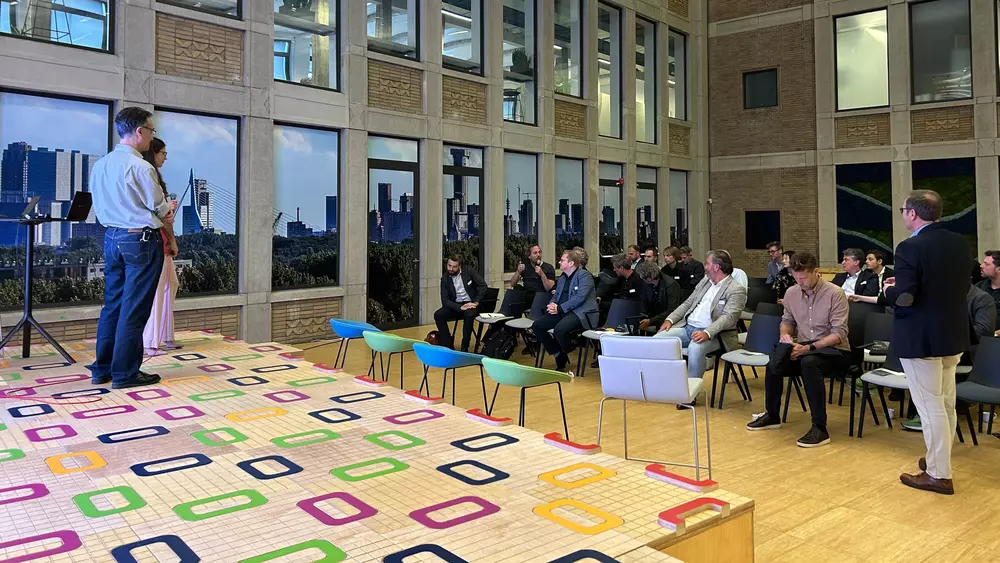
WORKSHOP 1
Highrise buildings as a contribution to a Healthy City run by Niklas Veelken, Drees & Sommer
The workshop designed by Niklas Veelken focused on the topic of Highrise buildings within the environment of a healthy city. The questions discussed focused on both perspectives and their relationship. Three levels of interconnections were debated:
“Highrise Building for/and/vs. a Healthy City”
Moving from this impulse driven part to an interactive discourse on how icon buildings influence a healthy development, what mixed-use concepts plays in the role of financing and adapting to new requirements, the interaction with social and outside spaces as well as climate risk challenges and sustainability.
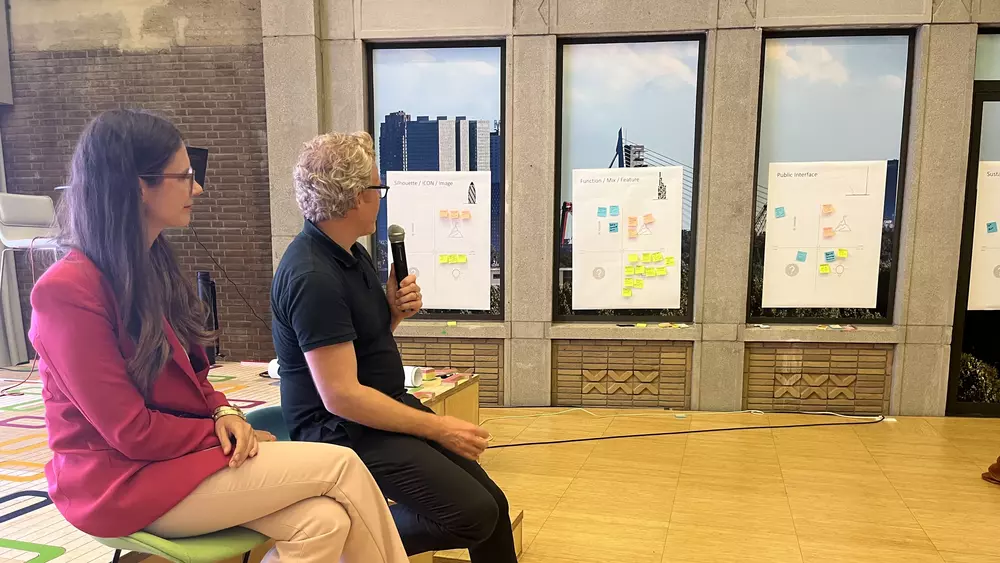
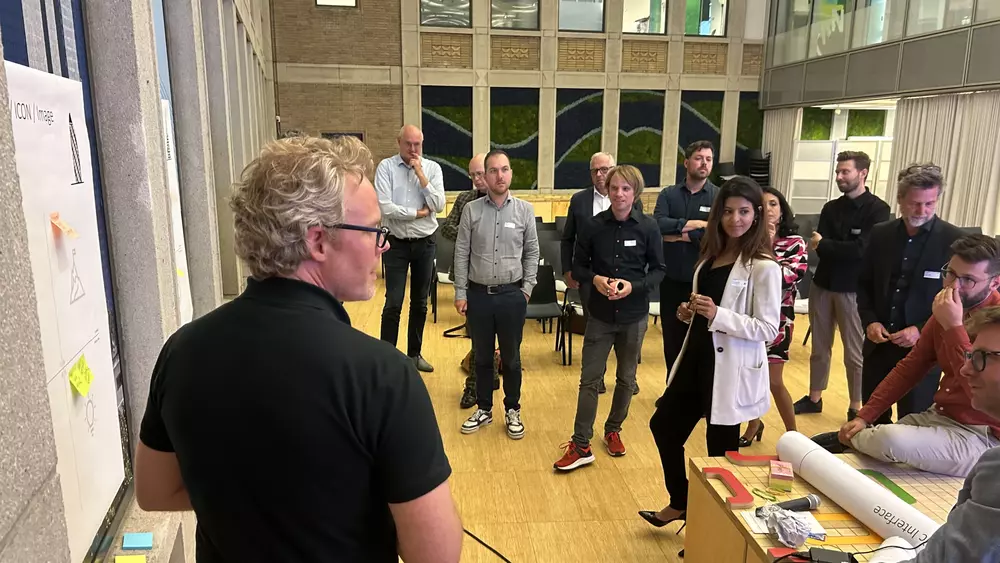
WORKSHOP 2
Urban Mobility in a Healthy City run by Vincent Taapken, New Industry
The workshop on Urban Mobility in a Healthy City offered a platform for in-depth discussions on the ongoing challenge of urban mobility, considering governmental regulations, emissions, and urban development. A key focus was on exploring innovative parking solutions aimed at optimizing space and reducing dependency on cars, thereby fostering a more sustainable and efficient urban environment. Participants also emphasized the significance of effective political communication in garnering support for sustainable mobility initiatives and engaging the community in decision-making processes.
The significance of biodiversity was also highlighted, with an aim to achieve tree cover rates of 30% in urban areas, recognizing the role of green spaces in enhancing the livability and ecological balance of cities and significantly improving mental health. Lastly, the imperative of creating inclusive transport systems that cater to the needs of all community members, including minority groups, was discussed to ensure equitable access to mobility options.
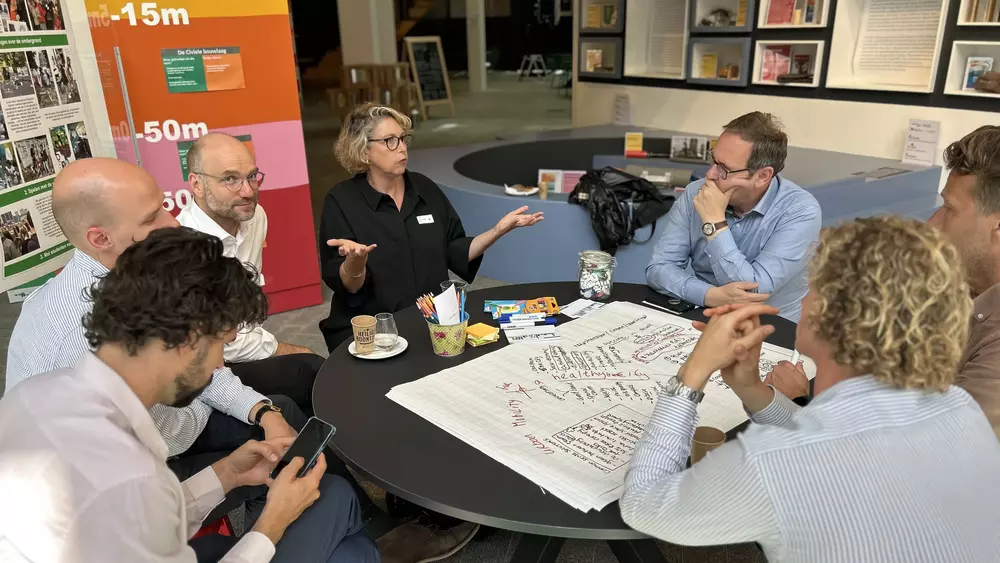
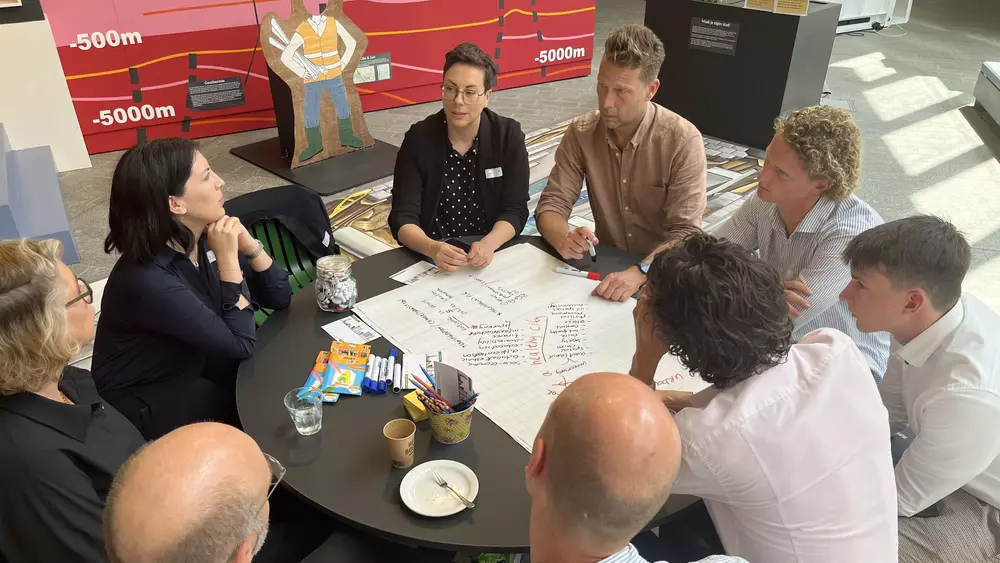
The evening was closed in IMD‘s Office space in Piekstraat , a former industrial building refurbished for office place and showcase area.
In line with our one-company approach, the active participation of our colleagues from various offices, namely Haris Piplas (CHE), Niklas Veelken (GER), Mario Villares (NL), Sandra Moermann (NL), Johan de Vris (NL), Elger Groenland (NL), and Henk de Vree (NL), greatly contributed to the success of the event.
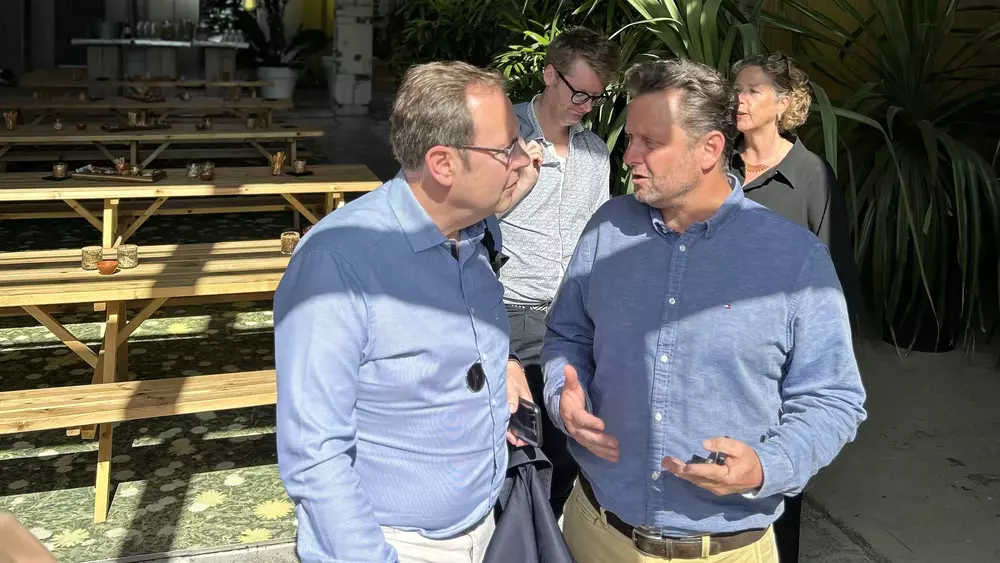
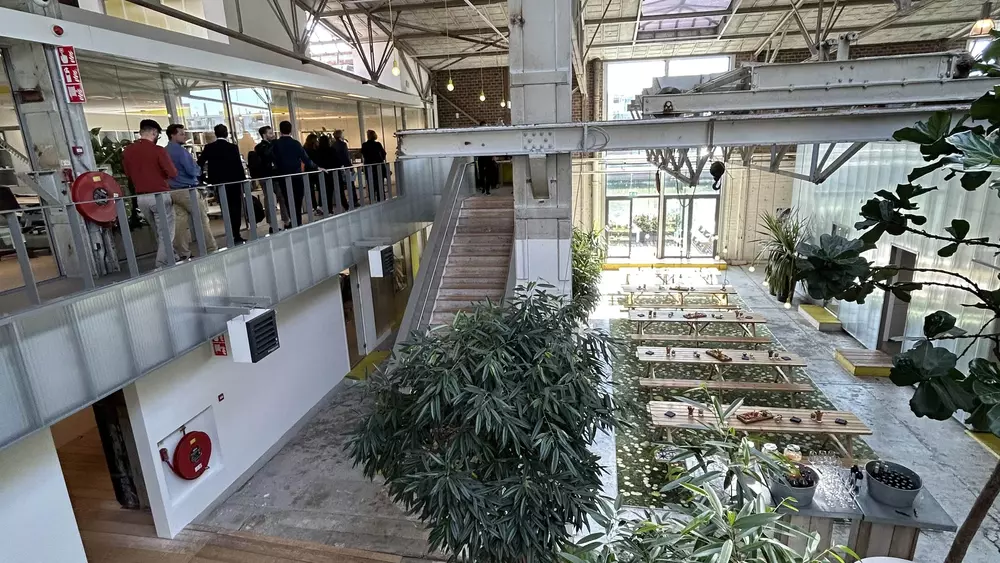
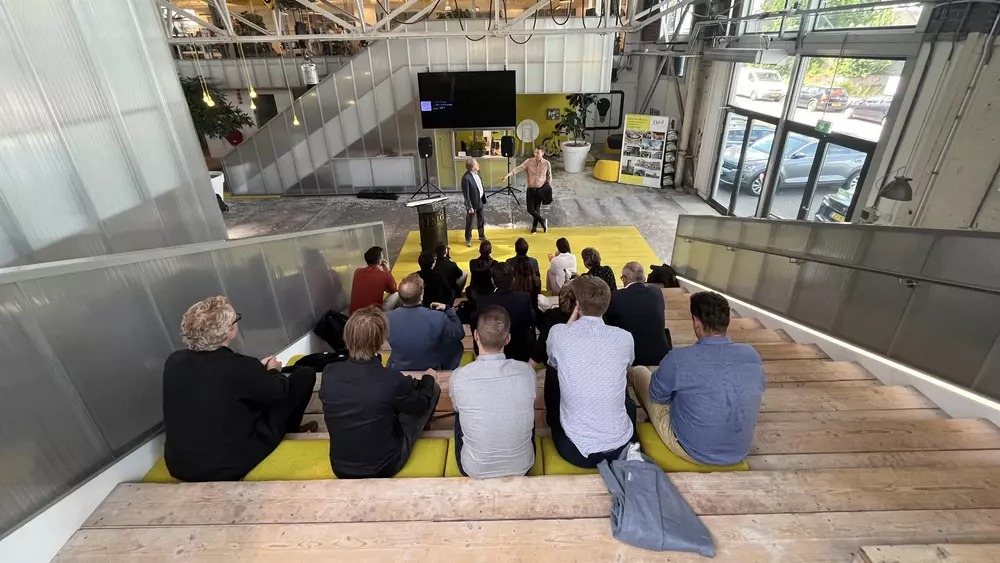
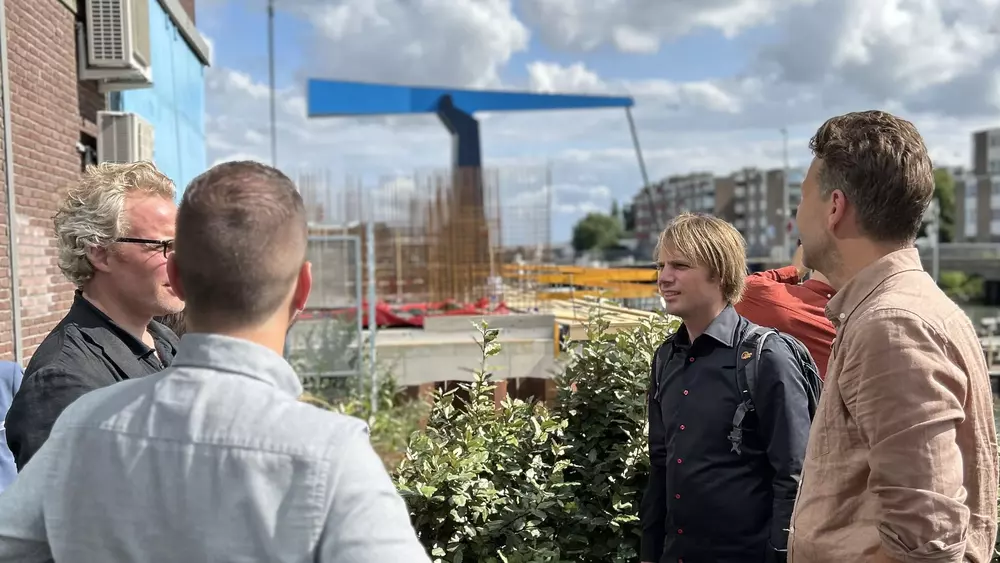
We are now looking forward to our next format in Copenhagen on the 31st of August.
In collaboration with Drees & Sommer International, we are organizing the final forum on 29th of November in London to present the results of our workshops and discuss the future development of Urban Density & the Vertical City.
GET In TOUCH
